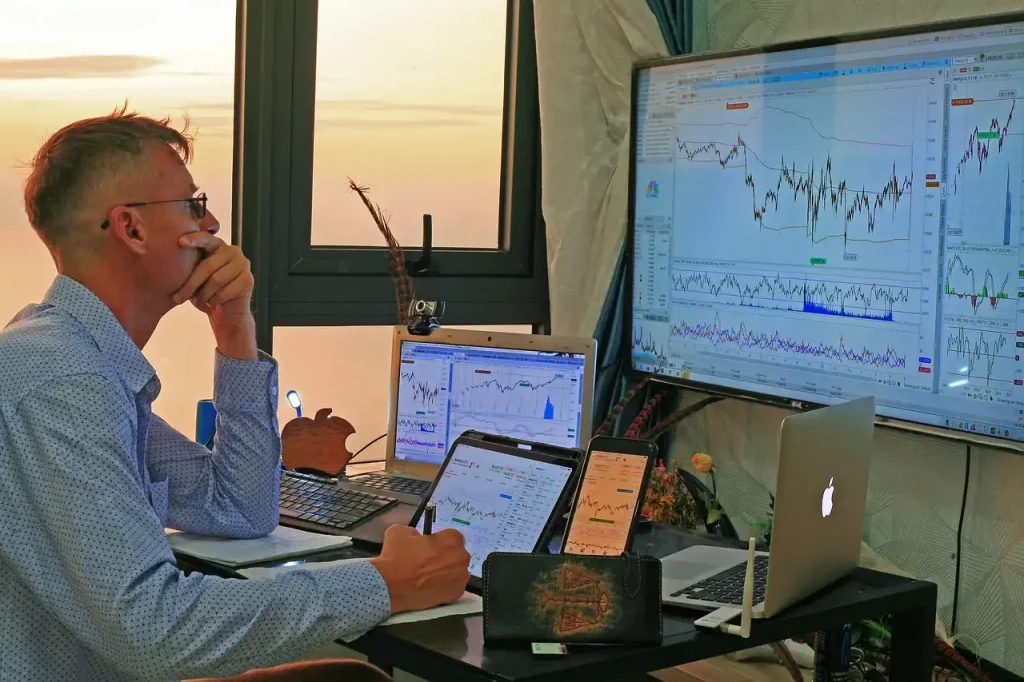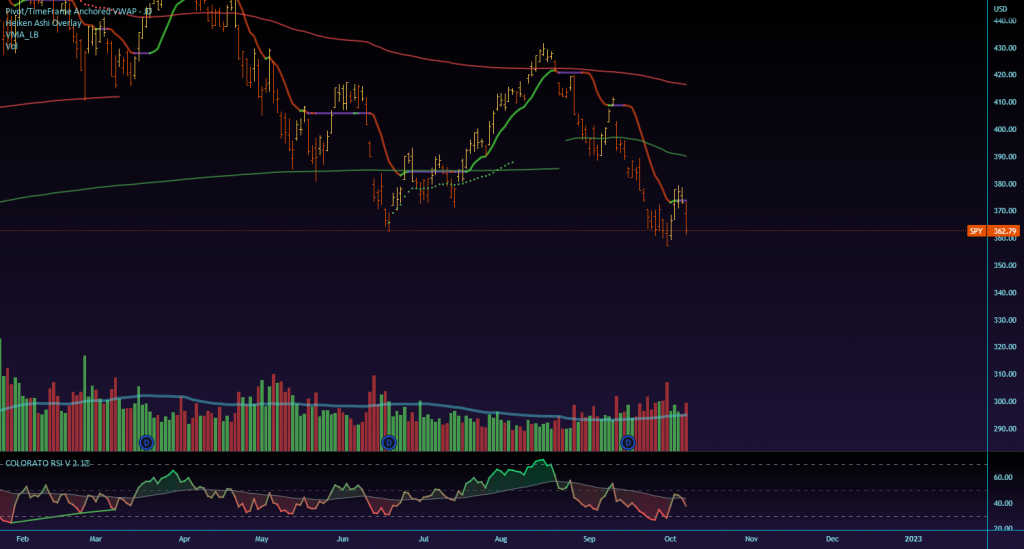There is a common expression: “all diseases are from nerves.” This statement is completely true for trading. You can thoroughly know all economic indicators, you can know all the tactics and technical signals inside and out, you can make forecasts for as long and correctly as you like, but as soon as you enter the market, all knowledge becomes unimportant and the trader simply surrenders to emotions.
Work in the financial markets is often compared to a casino: excitement, intensity of passions, stakes… Yes, this is all inherent in the work of a trader, but… far from everyone. At the beginning of a trader’s career, it is really very easy to get into the maelstrom of one’s own passions and emotions, and only an experienced professional is able to control his behavior.

Note that any trader experiences emotions from losing or winning, but the pros are distinguished precisely by spartan endurance and control over their own emotions.
There is a law in working on the stock exchange: the higher the level of emotionality, the lower the efficiency of work. It just seems like a simple thing to control your own feelings. In reality, the mechanisms for suppressing unnecessary experiences are much more complicated. At the initial stage, it can be difficult to resist sincere joy and worry about your successes and failures, but learning to consciously lower the bar of emotionality is in the interests of the trader.
Otherwise, a person runs the risk of replenishing the sad statistics of “dropped out of the game”.
It is important to remember: unlike the casino, where everything depends on fate and we are left with only excitement and excitement, a cool head and sound calculation play a big role in the market, since at any moment it is the trader who can change the course of the game, stop it altogether or, on the contrary, double the stakes.
And if these actions are carried out in the heat of the moment, then the work will really become a game of chance, nothing more.
Our goal is to make a profit, not to win a prize. Grab luck by the tail – the prospect, no doubt, is pleasant, but too short-lived and very illusory. You need to realize for yourself from the very beginning: how do you feel about trading? And if a trader is faced with the goal of EARNing stable money, then he will definitely have to abandon the idea of PLAYING in the market.
And you should be prepared for the fact that even with an internal clear set for stable progressive work, which distinguishes a trader from a casino player, it will be quite difficult to overcome the “demons” that sit inside even the most balanced and calm person.
Naturally, one should not fearfully expect that all traders will inevitably turn into a kind of people with stray ties, screaming and waving their hands, which are often shown in financial news. However, often the emotions experienced inside turn out to be very similar to this portrait. And, as a rule, the main difficulty on the way to defeating the enemy is to identify him.
The main enemies of a trader are his own emotions. It is conditionally possible to distinguish their four main manifestations: fear, greed, hope and euphoria. At the same time, oddly enough, even positive emotions serve a trader a disservice and lead to the fact that a person begins to do “stupid things” in his work, performing actions that he did not even plan to do.

Emotions of traders – The role of emotions in trading
The term “emotions”, which is used in the psychology of trading, is not entirely correct from the point of view of classical psychological science. In particular, of course, definitions such as “fear” or “greed” are not emotions in the correct psychological interpretation of this meaning. However, we use the definitions of “feelings”, “emotions” to show the psychological background and emotional coloring of any actions of a trader, his behavior.
To understand why it is so bad to be at the mercy of feelings, let’s look at the main situations of their manifestation using typical examples that almost every trader encounters. Let’s see how we can deal with it.
Zero to Hero
Learn to trade in 20 days – from setting up the platform to making the first trade
Trading emotions – Trader’s fears
The feeling of fear is most often the first of the emotions manifested in a person starting to work in the market. Fear can be classified into two components: primary fear and secondary.
Primary fear.
When it occurs. Appears at the very beginning of work, before making the first transaction. You study the charts, look at the flashing quotes and… an unaccountable fear begins that the very first trade may turn out to be unprofitable.
How it feels. As a rule, as soon as you decide that you are ready for your first trade, a feeling of insecurity immediately sets in. What if it doesn’t work? Is there not enough knowledge?
Causes of occurrence. Doubt inherent in every mentally healthy person. Doubt is a psychological phenomenon, a product of critical thinking. In the process of assessing any life situation, a person considers it from different positions, weighing the pros and cons of making any decisions.
At the stage of imagining possible consequences, emotions are included in the evaluation process. All people take a different time to such an assessment, they have a different “coefficient of depth of reflection”.
High risk group. The fear of the first transaction in some cases can develop almost into a chronic one – when a person, having not yet done anything, can be afraid to enter the market for weeks (or more). In the general case, the primary fear is overcome fairly quickly, but some people are included in the “risk group”, that is, in the category of traders who, in fact, are afraid to become traders.
Here are the main factors predisposing to this, on the basis of which a person, even if he has never worked in financial markets, will be able to understand whether he is in danger of primary fear:
✔️Tendency to excessively long unproductive analysis of situations (consists in “circling” around the same aspects of the problem);
✔️ Uncertainty in the decision made after the fact (even when the deed is done, you worry);
✔️ The habit of double-checking everything several times (whether the iron is turned off, whether the subordinate sent a letter, whether the child did all the homework, etc.);
✔️Strictness to oneself and a high degree of responsibility for others.
What to do? How to overcome fear in trading? You can deal with any emotions only by “bringing them to clean water”. This can be done only if you understand the cause and mechanism of the occurrence of a particular feeling. Because of what the primary fear appears, we have considered, the reasons are clear. It remains to “neutralize” it. This can be done by “extorting” those arguments that he helpfully “slips”.

Below are the most common “good reasons” not to enter the market and, accordingly, counterarguments.
“I will lose money.” – Open the first trade with a small deposit. No need to plan a long-term large-scale operation to conquer the market. Even if the first trade turns out to be unprofitable, consider the loss of a small amount of money as a tuition fee, as an investment in your business, which will bring good results in the future.
“I don’t have enough knowledge. We still have to learn.” – If a trader does not have any result – neither positive nor negative – it is impossible to adequately understand whether knowledge is enough or not. You can check their quality only by analyzing the results of completed operations.
“If I lose in the first run, then this is fate. This, apparently, is not mine … ”- Fatalism is not the best helper. Operating with the terms “fate is not fate” is not productive. Do not allow the idea that your first trade is a litmus test of future success or failure in general.
“If I lose money, then I’m a bad trader.” – You can understand whether a trader is good or bad after making at least 7-10 transactions. A consistent analysis of the results will help identify errors (if any) and correct them.
“I’m just scared and there’s nothing I can do about it.” –
✅Choose one of the low volatility instruments (for example, the EUR/USD exchange rate or blue chips).
✅Make a plan of your actions (trading plan). It is desirable that it be short-term.
✅ Imagine that you have ALREADY opened this deal and analyze your feelings. As a rule, in the first seconds the heart jumps out of the chest, but almost immediately the pulse returns to normal …
✅Just click the appropriate “buy” or “sell” button in the trading terminal. And don’t forget to place limit orders.
✅Believe me, in 99.9% of cases the world remains the same, the computer continues to work, quotes flash, and the market does not “fly away” against your position in a matter of seconds.